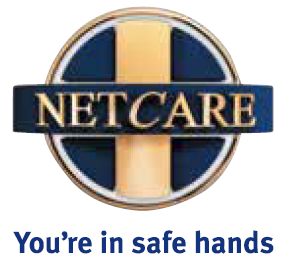
The healthcare industry is an aggregation and integration of sectors within the economic system that provides goods and services to treat patients with curative, preventive, rehabilitative, and palliative care. It encompasses the creation and commercialization of products and services conducive to the preservation and restoration of well-being. The contemporary healthcare sector comprises three fundamental facets, namely services, products, and finance. It can be further subdivided into numerous sectors and categories and relies on interdisciplinary teams of highly skilled professionals and paraprofessionals to address the healthcare requirements of both individuals and communities.
Health insurance or medical insurance is a type of insurance that covers the whole or a part of the risk of a person incurring medical expenses. As with other types of insurance, risk is shared among many individuals. By estimating the overall risk of health risk and health system expenses over the risk pool, an insurer can develop a routine finance structure, such as a monthly premium or payroll tax, to provide the money to pay for the health care benefits specified in the insurance agreement. The benefit is administered by a central organization, such as a government agency, private business, or not-for-profit entity.
Independent sector treatment centres (ISTCs) are private-sector owned treatment centres contracted within the English National Health Service to treat NHS patients free at the point of use. They are sometimes referred to as 'surgicentres' or 'specialist hospitals'. ISTCs are often co-located with NHS hospitals. They perform common elective surgery and diagnostic procedures and tests. Typically they undertake 'bulk' surgery such as hip replacements, cataract operations or MRI scans rather than more complex operations such as neurosurgery.

Netcare Limited is a South African private healthcare company. It operates through a number of subsidiaries and employs just over 21 000 people.

The NHS Confederation, formerly the National Association of Health Authorities and Trusts, is a membership body for organisations that commission and provide National Health Service services founded in 1990. The predecessor organisation was called the National Association of Health Authorities in England and Wales.

NHS Scotland, sometimes styled NHSScotland, is the publicly–funded healthcare system in Scotland and one of the four systems that make up the National Health Service in the United Kingdom. It operates 14 territorial NHS boards across Scotland, supported by seven special non-geographic health boards, and Public Health Scotland.

Emergency medical services in the United Kingdom provide emergency care to people with acute illness or injury and are predominantly provided free at the point of use by the four National Health Services (NHS) of England, Scotland, Wales, and Northern Ireland. Emergency care including ambulance and emergency department treatment is only free to UK residents and a charge may be made to those not entitled to free NHS care.

Healthcare in the United Kingdom is a devolved matter, with England, Northern Ireland, Scotland and Wales each having their own systems of publicly funded healthcare, funded by and accountable to separate governments and parliaments, together with smaller private sector and voluntary provision. As a result of each country having different policies and priorities, a variety of differences have developed between these systems since devolution.

The National Health Service (NHS) is the publicly funded healthcare system in England, and one of the four National Health Service systems in the United Kingdom. It is the second largest single-payer healthcare system in the world after the Brazilian Sistema Único de Saúde. Primarily funded by the government from general taxation, and overseen by the Department of Health and Social Care, the NHS provides healthcare to all legal English residents and residents from other regions of the UK, with most services free at the point of use for most people. The NHS also conducts research through the National Institute for Health and Care Research (NIHR).
Healthcare in England is mainly provided by the National Health Service (NHS), a public body that provides healthcare to all permanent residents in England, that is free at the point of use. The body is one of four forming the UK National Health Service as health is a devolved matter; there are differences with the provisions for healthcare elsewhere in the United Kingdom, and in England it is overseen by NHS England. Though the public system dominates healthcare provision in England, private health care and a wide variety of alternative and complementary treatments are available for those willing and able to pay.

The British United Provident Association Limited, trading as Bupa, is a British multinational health insurance and healthcare company with over 43 million customers worldwide.
University College London Hospitals NHS Foundation Trust (UCLH) is an NHS foundation trust based in London, United Kingdom. It comprises University College Hospital, University College Hospital at Westmoreland Street, the UCH Macmillan Cancer Centre, the Royal National ENT and Eastman Dental Hospitals, the Hospital for Tropical Diseases, the National Hospital for Neurology and Neurosurgery, the Royal London Hospital for Integrated Medicine and the Royal National Throat, Nose and Ear Hospital.

Spire Healthcare Group plc is the second-largest provider of private healthcare in the United Kingdom. It is listed on the London Stock Exchange and is a constituent of the FTSE 250 Index.

BMI Healthcare was an independent provider of private healthcare, offering treatment to private patients, medically insured patients, and NHS patients. As of 2019, it had 54 private hospitals and healthcare facilities across the UK, with headquarters in London. In December 2019, it was acquired by a parent company of Circle Health and was replaced by Circle Health Group in 2022.
The Association of Independent Healthcare Organisations was formed in April 2013 by a merger between the Private Hospitals Association and Independent Healthcare Advisory Services as a trade association for independent healthcare organisations.
EMIS Health, formerly known as Egton Medical Information Systems, supplies electronic patient record systems and software used in primary care, acute care and community pharmacy in the United Kingdom. The company is based in Leeds. It claims that more than half of GP practices across the UK use EMIS Health software and holds number one or two market positions in its main markets. In June 2022 the company was acquired by Bordeaux UK Holdings II Limited, an affiliate of UnitedHealth's Optum business for a 49% premium on EMIS's closing share price.
Healthcare in Sussex is the responsibility of NHS Sussex, an integrated care system and the NHS Sussex Partnership NHS Foundation Trust.

Private healthcare in the UK, where universal state-funded healthcare is provided by the National Health Service, is a niche market.
The private provision of NHS services has been considered a controversial topic since the early 1990s. Keep Our NHS Public, NHS Support Federation and other groups have campaigned against the threat of privatisation, largely in England.
Simplyhealth is a provider of health cash plans in the United Kingdom. The scheme is an amalgamation of a number of schemes, with the earliest dating from 1872. Members can claim back cash costs from various services from the NHS or private provision, such as dental care, optical care, prescriptions and physiotherapy, as well as having access to services such as remote telehealth consultations with a general practitioner.










